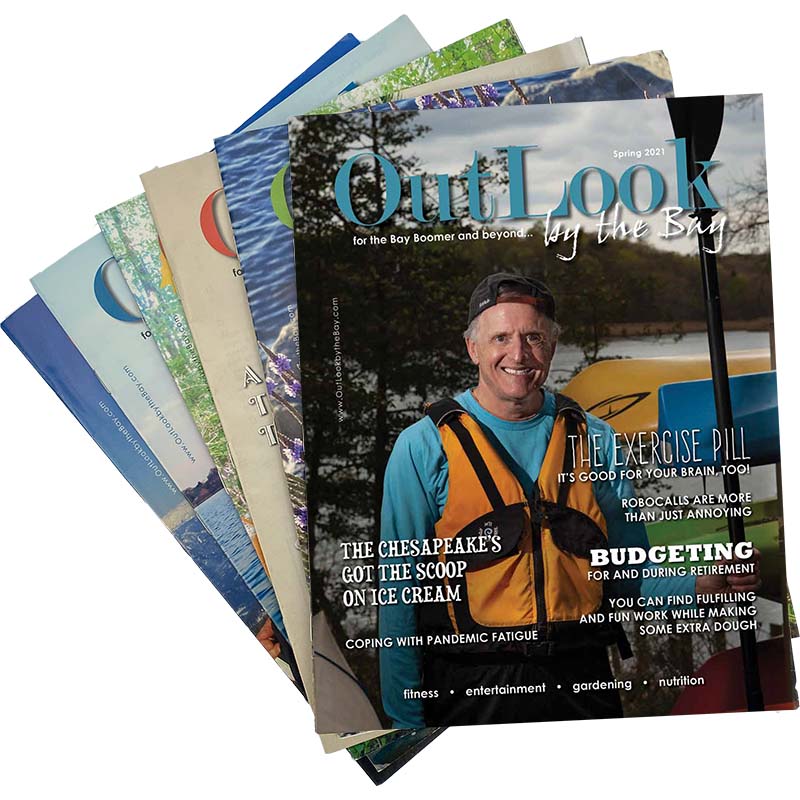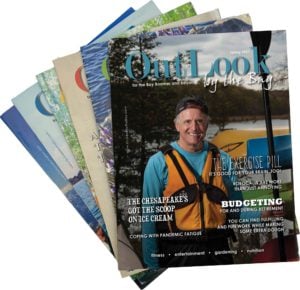As we age, our ability to bounce back from adversity or trauma may lessen. We may tire more easily and our natural elasticity may shrink, resulting in weakened resilience. Sometimes a stiff spine may create a closed mind! Staying physically limber may facilitate an open mind, embracing change and reawakening resilience.
Positive self-talk
In interviewing people who were resilient in recovering from a setback or in simply coping well with the challenges of daily life, a common theme surfaced. Survivors defined themselves in a positive manner. A person recovering from brain surgery responded by saying, “I am determined.” In surviving pandemic exhaustion, a woman said, “I made it through, and we made it through together!” A military amputee defined his resilience as “perseverance amid hardship plus faith in Jesus.” On her first day in her new apartment, it flooded due to a broken pipe. Then she fell and broke her hip. She said, “I am determined to not be a burden to anyone. I don’t want to be pushed in a wheelchair.” On the death of her spouse, a friend said, “Through prayer, friends, and family, I went from darkness to light.” A 93 year old man simply explained, “I am a survivor.” Overall, those interviewed exclaimed, “I am resilient!”
Daily heroes

Many emphasized the wisdom of viewing resilience as a daily challenge. The more we optimize ourselves every day, the better equipped we will be to manage major setbacks such as trauma and loss of loved ones. Louis Zamperini undoubtedly developed his super-resilience by preparing to run in the 1936 Olympics. He was then able to survive months adrift in a rubber raft in the Pacific Ocean after his U.S. Army Air Forces plane crashed in 1943. He was daily challenged to survive then and during his captivity in a Japanese prisoner of war camp from 1943 to 1945. His super-hero resilience is recounted in great detail in Laura Hillenbrand’s 2004 classic work, Unbroken. Amazingly, he never gave up. Ironically, he fulfilled the Japanese proverb, “Fall seven times, stand up eight.”
Resilience underpinnings
Research shows that daily practice of some basic habits is scientifically proven to improve resilience while improving life satisfaction in general. These underpinnings of resilience are Gratitude, Compassion, Acceptance, Purposefulness and Forgiveness. Daily conscious practice readies us for both daily resilience and occasional major challenges.
Gratitude to begin each day wards off anxiety. We cannot be thankful and fearful at the same time. Viewing everything and everybody as pure gift underlies gratitude.
Research establishes that growing in Compassion takes conscious application. See Henri Nouwen’s classic book, Compassion. Acquiring Compassion requires gradual moving from judging to understanding.
Acceptance of others and difficult life events are built upon the bedrock of self-acceptance. Being critical and unaccepting reminds us to activate our ability to be accepting.
Purposefulness in living is the foundation of resilience. We need to subscribe to a world view that awakens our energy to embrace each day. See Viktor Frankl’s iconic work, Man’s Search for Meaning.
Forgiveness is a matter of self-interest. In forgiving everyone and everything that have wounded us in any way, we are actually giving ourselves a gift. Essentially, unforgiveness hurts us more than it hurts anyone else.
Also, visit www.bouncebackproject.org for five other pillars of resilience.
No resilience
Some people I spoke with maintained that they seemed unable to recover from their personal disaster, loss or trauma. Sometimes the first step in recovery is full acceptance of the tragedy. Full acceptance often requires support from friends, family and an effective psychotherapist. As with so many areas of modern life, the various models or types of psychotherapy have also improved. Visit www.emdria.org for geographic listings of trauma and loss certified clinicians.
Another factor in resolving difficult setbacks is identifying and healing any earlier trauma that may be reactivated causing exacerbation. This type of work may require the expertise of a skilled therapist.
Healing humor
Mark Twain told us, “The human race has one really effective weapon and that is laughter.” It feels good, distracts us from our problems, and then we see our problems from a lighter perspective. Milton Berle said, “Laughter is an instant vacation!”
To help us laugh more, it is helpful and wise to watch or listen to humorous entertainment; spend more time with funny friends, read funny books, play with a pet, embrace your unique inner child. Robert Frost said, “If we couldn’t laugh, we would all go insane.” Winston Churchill urged us, “When you’re going through hell, keep going!” I say, “Keep on ‘truckin’!”
Dr. Jim David is a retired psychotherapist in Silver Spring. Visit www.askdrdavidnow.com for free, printable mental health newsletters and handouts. Email at [email protected].

Let's keep in touch!
Keep up with the latest OutLook by the Bay information by signing up here. We promise not to waste your time.

